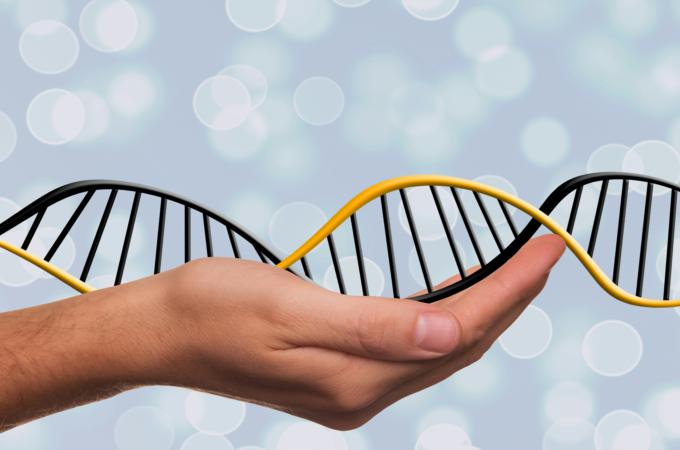It's in the genes
Personality tests have always been popular. So has just about anything that claims to help people understand themselves better. So I suppose it isn't surprising that we now have ads touting the benefits of personal genetic testing.
Maybe you've seen or heard them. "I always thought I was German. Now I found out that I'm actually Scottish, so I traded in my lederhosen for a kilt." Or "I was always told that our family was 100 percent Italian, but now that I know that I'm 17 percent Native American, I'm going to explore my Cherokee heritage." Or, a narrator explaining that the genetic report Julie is reading while drinking her morning coffee actually tells her that people with her genes tend to consume a lot of caffeine.
Sure, there's something fun in discovering more about who you are, genetically speaking. And, honestly, it's kind of amazing that businesses have found a way to cash in on our willingness to send our saliva through the mail for the sake of engaging in relatively innocuous navel-gazing. But there is also something very strange about a society that encourages us to use science to help us figure out who we are -- except when what science has to tell us is inconvenient or not what we want to hear.
I'm not one to care much about lab tests or bodily fluids. At least, those aren't on my list interesting things. Recently, however, one of our adult daughters connected the dots of a few symptoms she's been trying to address for a long time and consulted a geneticist. As it turns out, she, and probably a good number of the rest of us on my side of the family, have inherited a condition that affects our joints and connective tissue. On the up side, it's likely to be the reason the women in my family tend to look considerably younger than we are. It felt a little strange telling my doctor that I had a family history of this condition, when the source of that "history" was a child and not a parent or grandparent. He was quick to include it in my file, though, because it could be helpful in determining medical treatment or managing health risks. Yay science.
But science has a few other things to tell us, too. Unfortunately, there are a lot of us who practice selective listening. Genetics tells us that a fertilized human ovum is human life. Long before any of us is born, or even "viable," each one of us possess the unique genetic code that makes us what we are: people.
Our genes don't determine our lives. Still, every cell in our bodies contains the code we've inherited from our ancestors. That is what we may pass on to future generations. The basic code is contained, for most of us, in 23 pairs of chromosomes. Hence the catchy let-us-tell-you-about-your-genes website, 23 and Me.
But think about it. We're now living in a 22-and-you world, one that insists we can ignore at least one pair of those chromosomes: the pair that makes us male or female. We are who we are: male or female. Every one of our cells confirms it. It's certainly possible for us to be misinformed, ill-informed, uninformed, or simply hurt or confused. But substituting a fluid notion of "gender" for what a good look in the microscope (let alone the mirror) can tell us about ourselves, is what I like to call science-not-science.
Of course, the problem isn't the information science can give us. It's how we choose to use or ignore it. No science can tell us how to live or why. Those questions can be answered only by faith. But the answers our faith gives us don't deny what science reveals. I just keep imagining what it could be like for some people to read one of these personal genetics reports. "Wow! I never expected it! This tells me I'm 100 percent human -- and 100 percent female!" Well, duh!
- Jaymie Stuart Wolfe is a Catholic convert, wife, and mother of eight. Inspired by the spirituality of St. Francis de Sales, she is an author, speaker, and musician, and serves as a senior editor at Ave Maria Press. Find Jaymie on Facebook or follow her on Twitter @YouFeedThem.



















